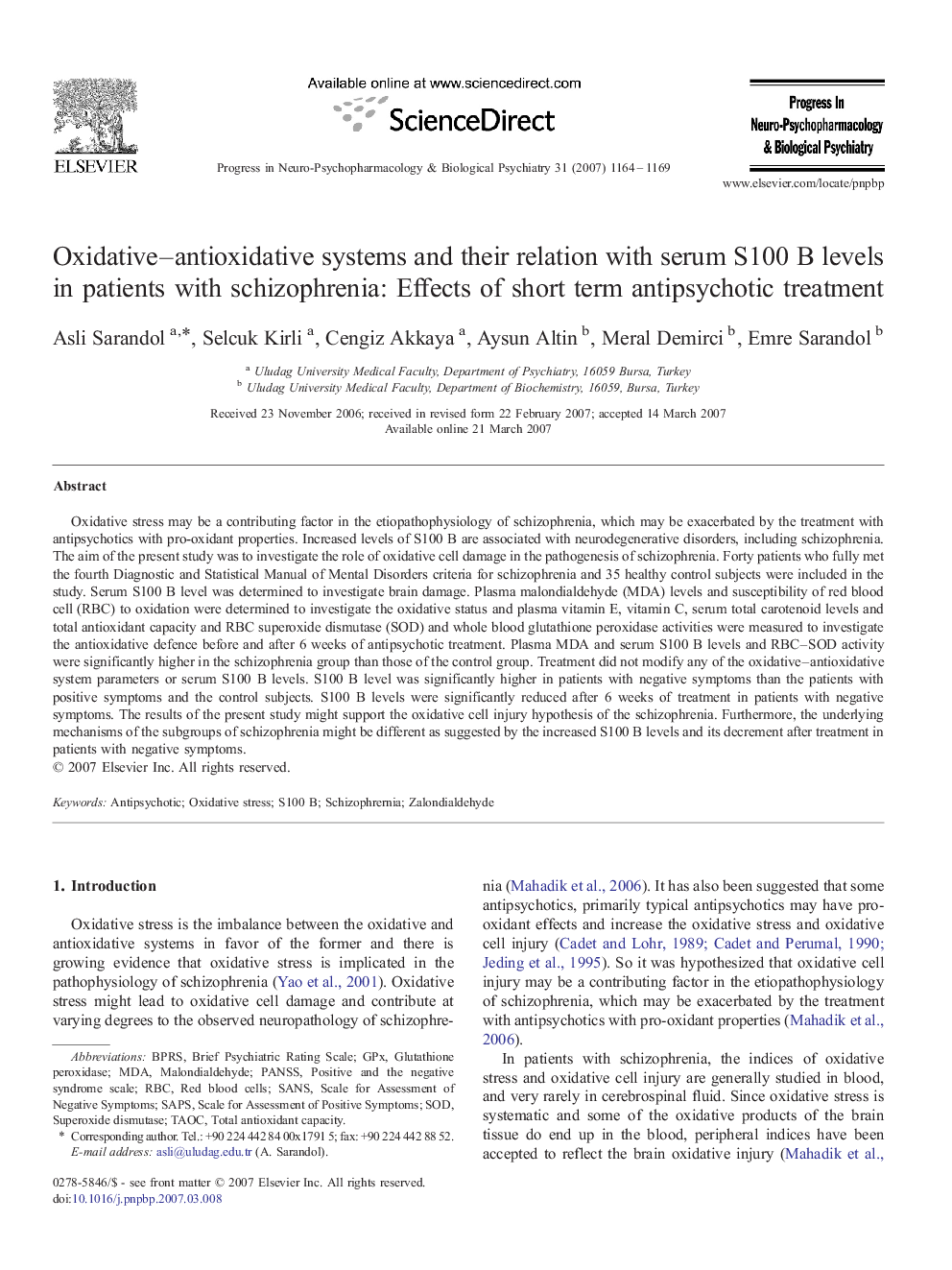| Article ID | Journal | Published Year | Pages | File Type |
|---|---|---|---|---|
| 2566116 | Progress in Neuro-Psychopharmacology and Biological Psychiatry | 2007 | 6 Pages |
Abstract
Oxidative stress may be a contributing factor in the etiopathophysiology of schizophrenia, which may be exacerbated by the treatment with antipsychotics with pro-oxidant properties. Increased levels of S100 B are associated with neurodegenerative disorders, including schizophrenia. The aim of the present study was to investigate the role of oxidative cell damage in the pathogenesis of schizophrenia. Forty patients who fully met the fourth Diagnostic and Statistical Manual of Mental Disorders criteria for schizophrenia and 35 healthy control subjects were included in the study. Serum S100 B level was determined to investigate brain damage. Plasma malondialdehyde (MDA) levels and susceptibility of red blood cell (RBC) to oxidation were determined to investigate the oxidative status and plasma vitamin E, vitamin C, serum total carotenoid levels and total antioxidant capacity and RBC superoxide dismutase (SOD) and whole blood glutathione peroxidase activities were measured to investigate the antioxidative defence before and after 6Â weeks of antipsychotic treatment. Plasma MDA and serum S100 B levels and RBC-SOD activity were significantly higher in the schizophrenia group than those of the control group. Treatment did not modify any of the oxidative-antioxidative system parameters or serum S100 B levels. S100 B level was significantly higher in patients with negative symptoms than the patients with positive symptoms and the control subjects. S100 B levels were significantly reduced after 6Â weeks of treatment in patients with negative symptoms. The results of the present study might support the oxidative cell injury hypothesis of the schizophrenia. Furthermore, the underlying mechanisms of the subgroups of schizophrenia might be different as suggested by the increased S100 B levels and its decrement after treatment in patients with negative symptoms.
Keywords
Related Topics
Life Sciences
Neuroscience
Biological Psychiatry
Authors
Asli Sarandol, Selcuk Kirli, Cengiz Akkaya, Aysun Altin, Meral Demirci, Emre Sarandol,
